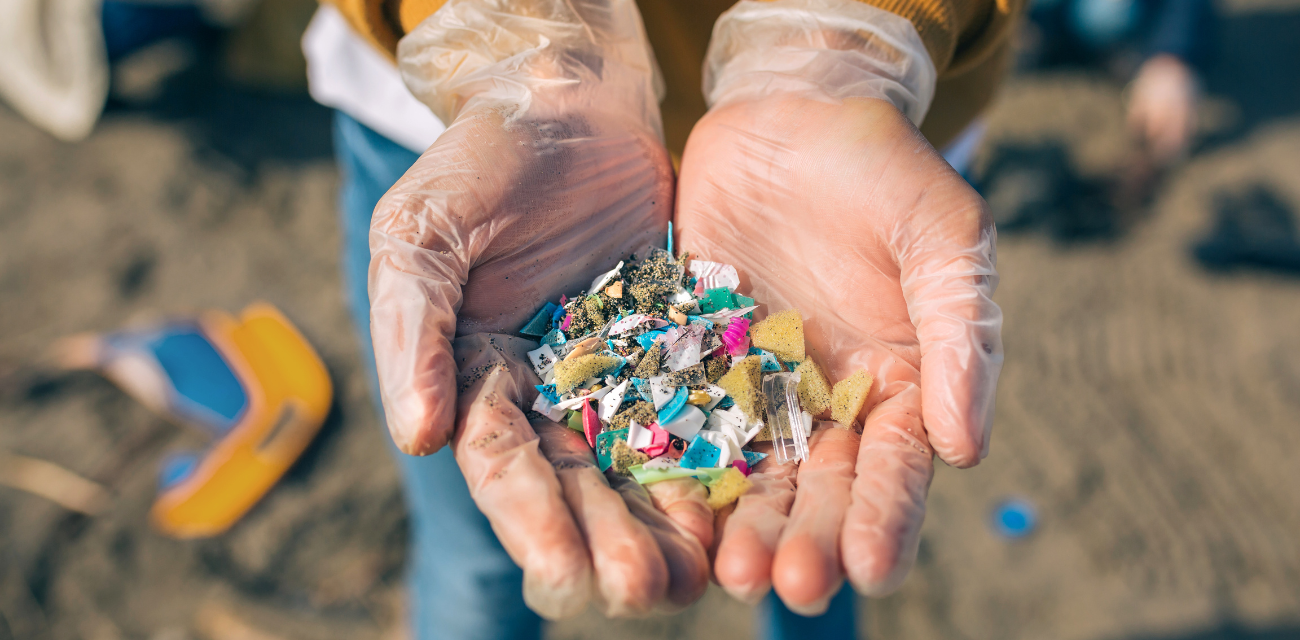Microplastics legislation would protect Great Lakes, public health

Authored by
Connect With the Experts

Samantha Pickering
If passed, Michigan will lead the way on plastic pollution prevention as worries rise
Michigan state lawmakers took bold legislative action to protect the Great Lakes and public health from the growing threat of microplastic pollution.
A bipartisan group of Michigan Representatives and Senators introduced a set of three bills in the Senate Natural Resources and Agriculture Committee today. If passed into law, would position Michigan as a national leader in safeguarding the Great Lakes and the health of its residents. The legislation would allow the state to monitor microplastic pollution, make drinking water safer and ban some forms of microplastics.
“While existing evidence shows plastics pose health risks, the full extent of those risks and their long-term impacts remain unclear,” said Samantha Pickering, public and environmental health policy manager for the Michigan Environmental Council. By combining critical research efforts with a proactive ban on microbeads, these bills prevent harm to people and the environment in the present and will allow us to find solutions that protect us even better in the future.”
Plastics do not biodegrade. Instead, they fragment into micro- and nanoplastics that persist in the environment. Their tiny size leads to them entering the bodies of animals, including humans, through air, water, food and consumer products.
“These bills represent a vital step toward protecting our drinking water, Michigan’s multi-billion-dollar outdoor recreation and tourism economy, and the health of our communities for generations to come,” said Tim Minotas, legislative and political director of the Sierra Club Michigan Chapter. “We’re just now beginning to understand the long-term damage microplastics can have on our precious Great Lakes, and Michigan has both an opportunity and an obligation to lead the region in preventing microplastic pollution.”
Both Minotas and Pickering spoke during the Senate committee hearing, as did representatives of these groups: The Cleanup Club, International Association for Great Lakes Research, Safe Water Engineering and Wayne State University.
Microbead ban
Senate Bill 503, sponsored by Sen. Jeff Irwin (D-Ann Arbor), and House Bill 4766, sponsored Rep. Laurie Pohutsky (D-Livonia).
The legislation bans the use of microbeads in Michigan, which are tiny, manufactured plastic particles that are usually smaller than one millimeter (similar to the size of glitter) that can be found in personal care products like toothpaste. This bill goes beyond the scope of the federal Microbead-Free Waters Act of 2015 to cover additional products, like cleaning supplies.
Research and strategy
Senate Bill 505, sponsored by Sen. Sue Shink (D-Ann Arbor), and House Bill 4767, sponsored by Rep. Denise Mentzer (D-Mount Clemens).
This legislation requires the Department of Environment, Great Lakes, & Energy (EGLE) to develop a comprehensive statewide research and monitoring plan for microplastics in the Great Lakes. The plan will assess the presence of microplastics in the environment and the Great Lakes ecosystem to evaluate the ecological, health and economic impacts.
Drinking water study
Senate Bill 504, sponsored by Sen. Dayna Polehanki (D-Livonia), and House Bill 4768, sponsored by Rep. Veronica Paiz (D-Harper Woods).
This legislation would require EGLE to establish a statewide microplastics monitoring program focused on public drinking water supplies. EGLE must conduct quarterly testing across diverse water sources including the Great Lakes, tributaries, and inland lakes to assess baseline levels and potential health risks. The department must also publish a detailed report summarizing findings, including microplastic characteristics, possible sources, and recommendations for risk assessment and mitigation.
The Great Lakes provide drinking water to 28 million people and support a $6 trillion regional economy. The Great Lakes Restoration Initiative recently found that for each $1 spent on research, more than $3 is generated in the Great Lakes economy.
Discover
Power environmental change today.
Your gift to the Michigan Environmental Council is a powerful investment in the air we breathe, our water and the places we love.
Sign up for environmental news & stories.
"*" indicates required fields




